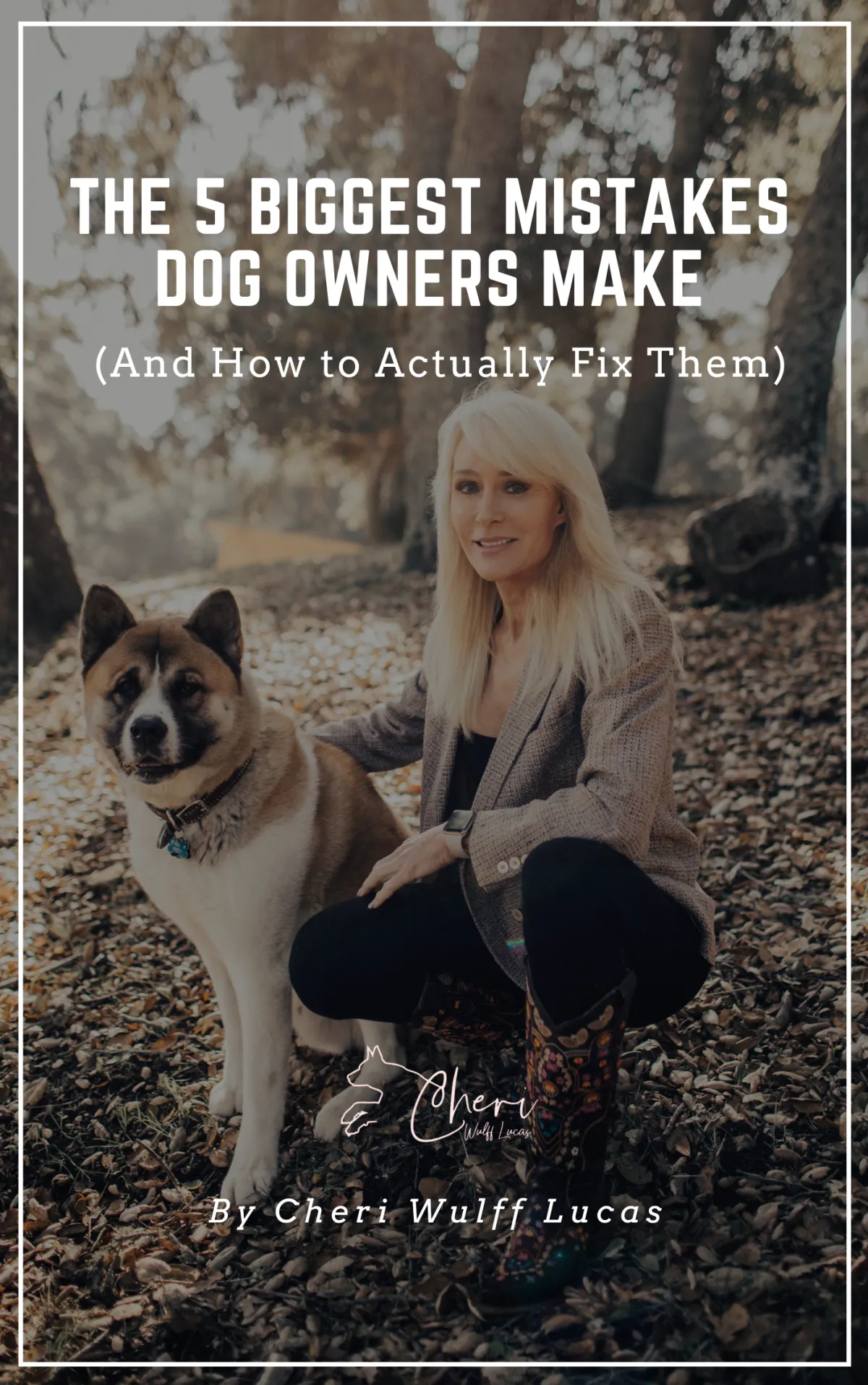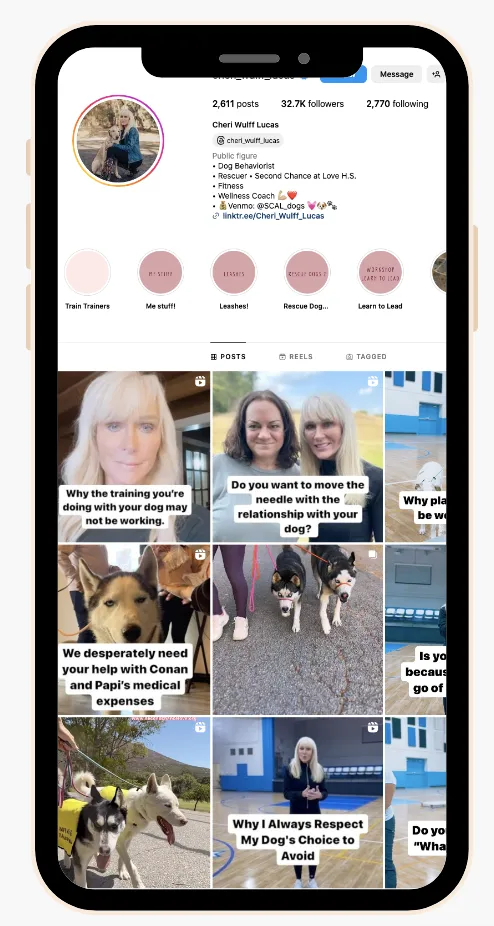Unleash Your Inner Leader and Transform Your Life (Your Dog Will Thank You Too!)
Internationally acclaimed canine behavior specialist and speaker Cheri Lucas has helped countless dog owners find lasting solutions to even the most challenging behavior problems. Through her transformative workshops, personalized consultations, and dynamic speaking engagements, Cheri teaches intuitive, structured, and highly effective methods that empower people to become confident leaders — both in life and with their dogs.
Cheri has a unique gift for bridging deep expertise with real-world relatability, especially in the realms of dog behavior and education. Using analogies, real-life stories, and practical examples, she simplifies complex concepts about leadership and communication. This approach resonates deeply with her students and audiences alike, making advanced behavioral insights feel natural and accessible. Her ability to connect, teach, and inspire is a key factor in her success — and what sets her apart as both a world-class dog rehabilitator and educator.
Introducing Cheri's Ebook...
The 5 Biggest Mistakes Dog Owners Make
(And How to Actually Fix Them)

Programs
Train the Trainer Mentorship Program
This Program is designed to empower dog owners and trainers with the knowledge, skills, and confidence to address the most challenging canine behaviors through personalized guidance, hands-on experience, and proven methodologies.
Learn to Lead Workshop
3-day workshop that was created for both professional trainers and civilian dog owners. This workshop is unique as it has both working and audit opportunities for students.
Wellness Unleashed Program
Cheri’s Wellness Unleashed Program teaches emotional well-being as a skill. Her program helps people build self-confidence for a healthier life with their pets.
Learn to Lead Virtual Academy
An exclusive virtual opportunity to receive personalized advice from Cheri outside of her in-person trainings.
Master the Walk with Learn to Lead Leashes
About Cheri Wulff Lucas
Cheri Wulff Lucas, widely recognized for her groundbreaking work in dog behavior and training, has become an internationally acclaimed canine behavior specialist and speaker. Through her highly sought-after in-person workshops, including Learn to Lead, Train the Trainer, and Wellness Unleashed, she has solidified her reputation as a transformative figure in the field. These sold-out workshops have garnered global acclaim, attracting attendees from around the world eager to learn from her expertise.
Through workshops, private consultations, and public speaking engagements, Lucas spreads a message of hope to dog owners struggling with behavior challenges such as fear, aggression, fixation, and separation anxiety. Her gentle, intuitive, and effective methods empower dog owners to unleash their inner strong, assertive leader, transforming relationships with their canine companions.
Internationally, Cheri has appeared on the German reality TV show Up and Away (VOX network) and worked alongside Cesar Millan as his Master Trainer on National Geographic’s Cesar’s Recruit Asia. Cheri assisted with several Cesar Live tours in Europe and the U.S., and has published insightful articles for CesarsWay.com™.
3,078
Women Trained in Leadership Programs
9,078,098
Reached via Video, TV, Podcasts & Interviews
5,039
Dogs
Saved
21
Countries
Toured
See what other dog owners are saying

Get regular tips and other content from me on my socials!
Copyrights 2025 | Cheri Wulff Lucas | Terms & Conditions | Privacy Policy

Instagram
TikTok